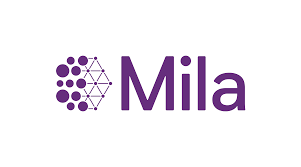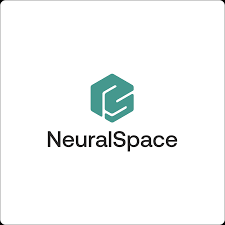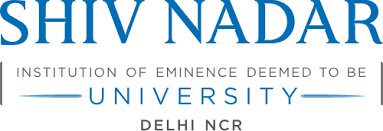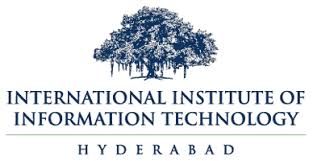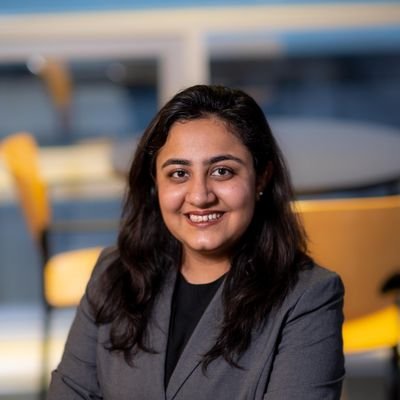My research is centered around socio-technical alignment of AI systems to represent diverse human preferences and maintain diversity. I investigate how language and multimodal models can continually learn from real-world human interaction, through methods for preference elicitation and alignment, adaptive optimization and personalized reasoning.
I earned my Masters degree in Computer Science from University of British Columbia, supervised by Vered Shwartz. I worked on exploring the cultural competence of language and multimodal models. Prior to starting my graduate studies, I spent a year at NeuralSpace as an Applied Research Scientist. I have also been a part of various academic labs, DeCLaRe Lab at SUTD, MIDAS Lab, at IIIT Delhi, Language Technologies Lab and Software Engineering Lab at IIIT Hyderabad. In 2020, I graduated with a Bachelors in Computer Science and a Minor in Mathematics from Shiv Nadar University, India.
If you are reading this, I would love to talk to you! I am always looking for opportunities to collaborate. My DMs are open if you have any questions about grad-life at MILA/McGill/UBC or Canada in general. Message me on X or send me an email.
Updates
| Nov 2025: | Gave a talk on value drifts at University of British Columbia. |
| Oct 2025: | We released our paper, Value Drifts: Tracing Value Alignment During LLM Post-Training! Check out the paper and tweet. |
| Oct 2025: | I will be at COLM 2025 in Montreal 🇨🇦 |
| July 2025: | Our paper CulturalFrames (in collab with Google DeepMind) was accepted to EMNLP'25! Check out the paper and tweet. |
| June 2025: | I am at Nashville 🇺🇸 for CVPR 2025, co-organizing the VLMs-4-All Workshop. |
| April 2025: | I was awarded the prestigious FRQNT Doctoral Training Research Scholarship!✨ |
| April 2025: | I will be at the Simons Institute at UC Berkeley 🇺🇸 for the Safety-Guaranteed LLMs Workshop. |
| April 2025: | We released our Thoughtology paper! This was a huge and fun lab effort. Check out the paper and tweet. |
| Mar 2025: | I was awarded one of Mila’s EDI Excellence scholarships for the category - Women in AI, PhD level!✨ |
| Feb 2025: | We released our position paper, Societal Alignment Frameworks Can Improve LLM Alignment. Check out the paper and tweet. |
| Dec 2024: | I was awarded the Prof. Cho Diversity Scholarship at MILA! |
| Nov 2024: | I will be at Miami 🇺🇸 for EMNLP'24, presenting our paper on evaluating multicultural understanding of VLMs. |
| Sept 2024: | I moved to Montreal 🇨🇦! I am starting a PhD with Siva Reddy at McGill University and Mila! It's a dream come true! |
| Aug 2024: | I defended my Master's thesis and have officially graduated from UBC! I will miss Vancouver. |
| April 2024: | I will be at Barbados 🇧🇧, as an invited guest for Bellairs Invitational Workshop on Contemporary, Foreseeable and Catastrophic Risks of Large Language Models. |
| April 2024: | I was awarded the BPOC Graduate Excellence Award at UBC! |
| Feb 2024: | I was invited as a guest speaker for course CPSC 532V at UBC. I gave a lecture on exploring Cross-Cultural Phenomena in NLP. |
| Jan 2024: | Look mom and dad, I was LIVE on TV! I was interviewed by Global News and spoke about solving diversity issues in AI model. Check the live TV interview! Thanks to Vered and the UBC Media Team for this opportunity. |
| Jan 2024: | UBC News released an article about my research! |
Selected Publications
Value Drifts: Tracing Value Alignment During LLM Post-Training
, Shravan Nayak, Gaurav Kamath, Marius Mosbach, Karolina Stańczak, Vered Shwartz, Siva Reddy
Under Review
pdf
abstract
tweet-1
tweet-2
data
code
Societal Alignment Frameworks Can Improve LLM Alignment
Karolina Stańczak, Nicholas Meade, , Hattie Zhou, Konstantin Böttinger, Jeremy Barnes, Jason Stanley, Jessica Montgomery, Richard Zemel, Nicolas Papernot, Nicolas Chapados, Denis Therien, Timothy P. Lillicrap, Ana Marasović, Sylvie Delacroix, Gillian K. Hadfield, Siva Reddy
ICLR'25 | Bidirectional Human-AI Alignment Workshop at ICLR'25
pdf
abstract
tweet
Assessing Cultural Expectation Alignment in Text-to-Image Models and Evaluation Metrics
Shravan Nayak, , Xiaofeng Zhang, Verena Rieser, Lisa Anne Hendricks, Sjoerd van Steenkiste, Yash Goyal, Karolina Stanczak, Aishwarya Agrawal
EMNLP 2025 (Findings) | The 2025 Conference on Empirical Methods in Natural Language Processing
pdf
abstract
tweet
From Local Concepts to Universals: Evaluating Multicultural Understanding of Vision-Language Models
, Sahithya Ravi, Aditya Chinchure, Eunjeong Hwang, Vered Shwartz
EMNLP'24 (Main) | The 2024 Conference on Empirical Methods in Natural Language Processing
pdf
abstract
GD-COMET: A Geo-Diverse Commonsense Inference Model
, Vered Shwartz
EMNLP'23 (Main) | The 2023 Conference on Empirical Methods in Natural Language Processing
pdf
abstract
